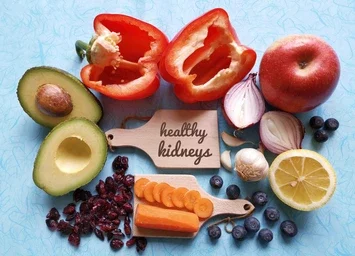Kidneys are bean-shaped organs found directly beneath the rib cage. The elimination of waste items in your body is controlled by these fist-sized organs. They are able to contribute to the urine in this way. They also play an important role in the generation of red blood cells (RBCs). As a result, it is unavoidable for a person to look after their kidneys.
Pakistan is ranker seventh on a list of countries with a high risk of kidney disease, according to the top urologist in Rawalpindi. There is a need for people to update their knowledge about renal health and the dietary requirements that go with it. This post will go over some of the dietary habits that will be incredibly beneficial to your renal health.
What Should You Stay Away From?
Renal patients’ diets are tailors to their specific needs. Essentially, it is determine by the severity of the condition and the patient’s medical history. First, let’s have a look at these recurring constraints!
1. Sodium
Sodium is the primary component of table salt. Apart from that, sodium can be found in a variety of foods, including salted nuts, smoke, cured, or salted meat.
Excess salt has a reputation for raising blood pressure. Patients with renal illness are frequently recommended to decrease their salt consumption.
2. Potassium
Potassium plays an important role in fluid balance and muscular contraction. However, if the kidneys are damage, their clearance is slowed, which causes the blood levels in the body to rise. As a result, daily potassium intake should be limit at 2,000 mg.
3. Phosphorus
For damaged kidneys, removing phosphorus from the body becomes a difficult task. As a result, limiting the amount of phosphorus in the body is a prudent decision. Renal patients must keep their daily phosphorus intake between 800-1, 0000 mg.
4. Protein
End products of protein metabolism cannot be processes by severely damage kidneys. As a result, protein is another food that is frequently restricts in the diet of individuals with renal problems.
It’s worth noting that dietary restrictions vary based on the severity and extent of kidney disease. Furthermore, if the patient has a prior medical history, it may have an impact on their diet. As a result, it’s dangerous to assume that all persons with renal failure have the same dietary restrictions.
Read More: become a nutritionist biologist
Foods or Dietary Habits to keep your Kidneys Healthy
Some of the foods that will benefit your renal diet are listed below.
1. Whites of eggs
The nutritious importance of egg yolks is undisputed; however their phosphorus concentration is often high. As a result, egg whites are the superior choice.
Egg whites are note for having a high protein content that is good for the kidneys. Egg white is the ultimate saving grace for dialysis patients who require a consistent protein feed.
2. Garlic
People with kidney problems may need to decrease their sodium consumption. Because salt is not just a vital mineral but also an important component of everyday foods, there is a need for a substitute that is both nutritious and enjoyable. Garlic cloves are known to serve this purpose. When you include them in your diet, your meal will become more appetizing and inviting.
They also contain high levels of manganese, vitamin C, and vitamin B6. As a result, make sure you include garlic in your diet.
Garlic decreases blood pressure in the body and helps you get a good erection; therefore it’s great for sexual activities. Cenforce, Vidalista or Fildena is the best generic Viagra to cure ED Disease if you do not use garlic in your everyday routine.
3. Olive oil
Phosphorus intake is harmful to patients with kidney disease, as previously stated. Olive oil, which is also phosphorus-free, can be use as a nutritional alternative.
Olive oils are also beneficial for patients who are experiencing weight loss as a result of advanced kidney disease. Food prepared with olive oil is certain to replenish the body’s nutritional requirements.
The Final Word!
There is a link between appropriate eating habits and healthy kidneys. According to the NHS, persons who are diagnose with renal failure at a young age do not pay attention to their food. That is why you must ensure that you are not repeating the same mistake. Pay attention to what you consume, and if you still have kidney issues, arrange an appointment with your urologist.














